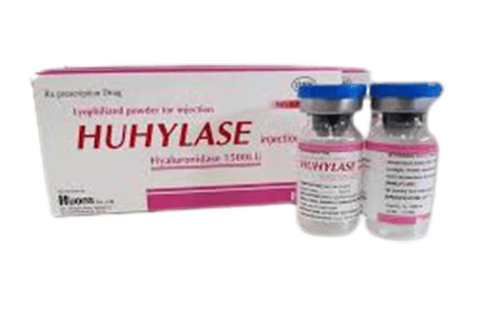This is an automatically translated article.
Privagin is used to relieve pain in cases where the pain is not too severe. When using Privagin, patients need to follow the doctor's instructions to ensure effectiveness and avoid unwanted side effects.
1. Uses of the drug Privagin
Privagin is indicated for use in cases of moderate to mild pain. However, the pain reliever Privagin is only effective when prescribed by a doctor. If the patient experiences severe pain, the patient should not use Privagin.
Indications to use Privagin will be decided and prescribed by the doctor. Therefore, doctors can assign different cases of patients to use the drug. Accordingly, patients need to carefully check the information about the drug before using it and note that it is not allowed to use the drug without specific instructions and instructions.
2. Dosage and how to use Privagin
Privagin is prepared in the form of intramuscular injection. Depending on the level and condition, the doctor will appoint intramuscular injection, intravenous injection or slow injection. Dosage of the drug Privagin is applied to children from 15 years of age. For children under 15 years of age, consider not arbitrarily taking the drug. The following is a reference dose for patients:
Patients with chronic pain To treat chronic pain, patients are usually prescribed the first dose of 25mg / day. After taking the first dose, the dose will be gradually increased in a 3-day cycle, increasing by 1 dose. The number of times a day is used will increase from a single dose to a maximum of 4 doses and the total amount of medicine in the day will be 100 mg.
In case the pain does not improve, the dose can be increased to 50 mg each time. Dosage was also gradually increased until 200 mg per day was reached. Each dose should be spaced about 4-6 hours apart. The maximum dose per patient may be increased not to exceed 400 mg/day.
Injecting drugs for patients with acute pain use high doses. Thus, each patient can use up to 100 mg for acute pain.
If the patient has recently undergone surgery, the first dose will be used 100 mg and the next dose given 10 - 20 minutes apart but only 50 mg injection. In the first hour of use, patients should note that only less than 250 mg is used. After that, the next dose must be spaced 4-6 hours apart. The maximum dose for patients undergoing surgery was raised to 600 mg.
Injecting drugs for patients with liver and kidney disease Liver and kidney disease affects the ability to receive drugs and use Privagin drugs. During treatment, the drug is eliminated through the liver and kidneys, so if the organ function is impaired, it may affect the drug's effectiveness. Therefore, the usual dose should not be used in patients with liver and kidney disease. The doctor will consider reducing the dose for the patient depending on the creatinine clearance rate, the maximum dose in patients with liver and kidney disease is 200 mg / day and the interval between doses should not be less than 12 hours.
If the patient is on hemodialysis or the clearance is less than 10 ml/min, Privagin may be contraindicated. Therefore, it is necessary to check the assessment of liver and kidney function and the degree of impairment if any to consider using the drug.
Injections for elderly patients Elderly people should take Privagin divided into several doses per day. Elderly patients should not take more than 300mg/day.
3. Notes before taking Privagin
Painkiller Privagin is contraindicated for use in some of the following cases:
Patients with a history of allergy to the drug's ingredients Children under 15 years of age Pregnant or lactating women Patient history Using narcotics or psychostimulants Patients using MAO inhibitors or stopping drugs for less than 15 days Patients with severe respiratory failure Patients with epilepsy without treatment
4. Side effects of the drug Privagin
Painkillers can cause side effects if the patient is on long-term treatment and always maintains a high dose. Usually, the drug will lead to conditions such as: nausea, loss of appetite, indigestion, constipation, rash, impaired vision, manifestations of perimenopause, urinary retention, difficulty sleeping, frequent mental stress physical . These symptoms will make the patient tired, so it is important to pay attention to early treatment. Besides, there are some other dangerous side effects but rarely appear. Therefore, patients should pay attention if there are symptoms of weight loss, swelling, heart rhythm disturbances, hepatitis, tinnitus, myocardial infarction, depression, hallucinations....
5. Interactions with drugs Privagin
The ability of Privagin to interact with other inhibitors when used concurrently can change the inherent effect. Therefore, in order to reduce possible drug interactions, when taking Privagin, patients should carefully ask their doctor about previous medications, even if they have stopped taking them in the last 1 month to be able to check the risk of interactions. bad deeds.
Above are some sharing about the drug Privagin. You can learn more about the pain reliever Privagin or consult your doctor before using it.
Follow Vinmec International General Hospital website to get more health, nutrition and beauty information to protect the health of yourself and your loved ones in your family.
Please dial HOTLINE for more information or register for an appointment HERE. Download MyVinmec app to make appointments faster and to manage your bookings easily.













